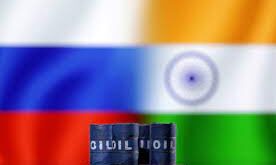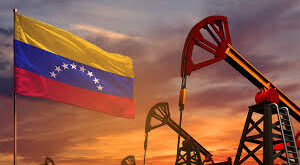Not too surprisingly. the 2017 edition of the “BP Statistical Review of World Energy” confirms once again that the Gulf countries are unrivalled sources of petroleum resources. Collectively. the six controlled a notable 29 per cent of known oil reserves in 2016 and unchanged from 2015.
The figure accounts for nearly 41 per cent of total reserves held by Opec. In turn. the grouping controls 71 per cent the world’s proven oil reserves. a fact adding to Opec’s importance as a sustained source of crude for the foreseeable future.
Of the six Gulf states. only Oman and Bahrain are not members of Opec. with the former keen to maintain its independent economic policies but still follows Opec’s production and price strategies. For its part. Bahrain is a small producer.
With a global oil share of 15.6 per cent. Saudi Arabia remains the second largest source of proven reserves after Venezuela. in turn controlling 17.6 per cent of the total. However. Venezuela lags in production and exports. even as it experiences socio-political turmoil partly for economic reasons such as crippling unemployment levels.
The global share of oil reserves of other GCC countries stands as follows: Kuwait with 5.9 per cent. UAE’s at 5.7 per cent. Qatar with 1.5 per cent and Oman’s 0.3 per cent. As regards production. GCC states contributed 24.4 per cent of global oil output in 2016. up from 23.3 per cent.
Remarkably. Saudi Arabia and the US each account for 13.4 per cent of global oil output. The latter’s share has been increasing since 2006 on the back of shale oil output. It is argued that steady rise of oil production in the US is a primary reason behind the low price environment since mid-2014. Russia follows with a commanding 12.2 per cent share.
Still. the UAE and Kuwait are notable oil producers. accounting for 4.4 per cent and 3.4 per cent of output. Likewise. GCC member states are important players in natural gas. controlling 22.6 per cent of reserves in 2016. Qatar boasts 24.3 trillion cubic meters of proven gas reserves. the third largest in the world.
The top three holders of gas reserves are Iran. Russia and Qatar. accounting for 18. 17.3 and 13 per cent. Qatar is the largest exporter of liquefied natural gas. mostly to Asian and European countries plus the US via long-term contracts.
Also. natural gas reserves of several other GCC countries cannot be overlooked: Saudi Arabia’s at 4.4 per cent. UAE with 3.3 per cent. Kuwait at 1 per cent. Oman’s 0.4 per cent and Bahrain on 0.1 per cent.
Gulf states accounted for 11.8 per cent of natural gas production in the world. spread between Qatar’s 5.1 per cent. Saudi Arabia on 2.1 per cent. UAE at 1.7 per cent. Oman with 1 per cent. Kuwait’s 0.5 per cent and Bahrain with 0.4 per cent. GCC countries have a track record of increasing output to meet demand while reducing production to help with stabilising prices when needed. They still depend excessively on the petroleum sector for the well-being of their economies. This was demonstrated when oil prices experienced a sharp drop. causing budgetary shortages and forcing a streamlining of public sector expenditures as well as rolling back subsidies.

 Iran Energy News Oil, Gas, Petrochemical and Energy Field Specialized Channel
Iran Energy News Oil, Gas, Petrochemical and Energy Field Specialized Channel



